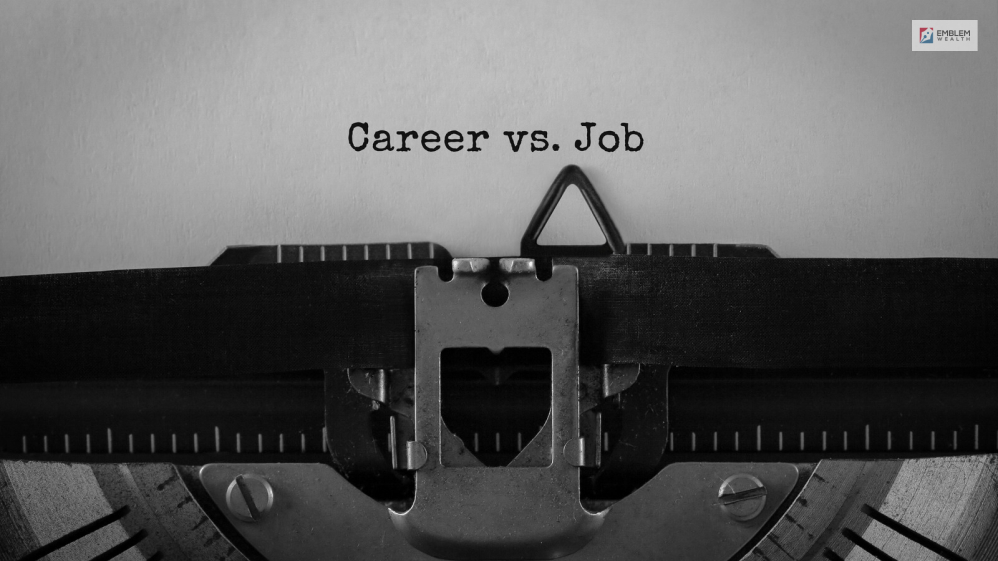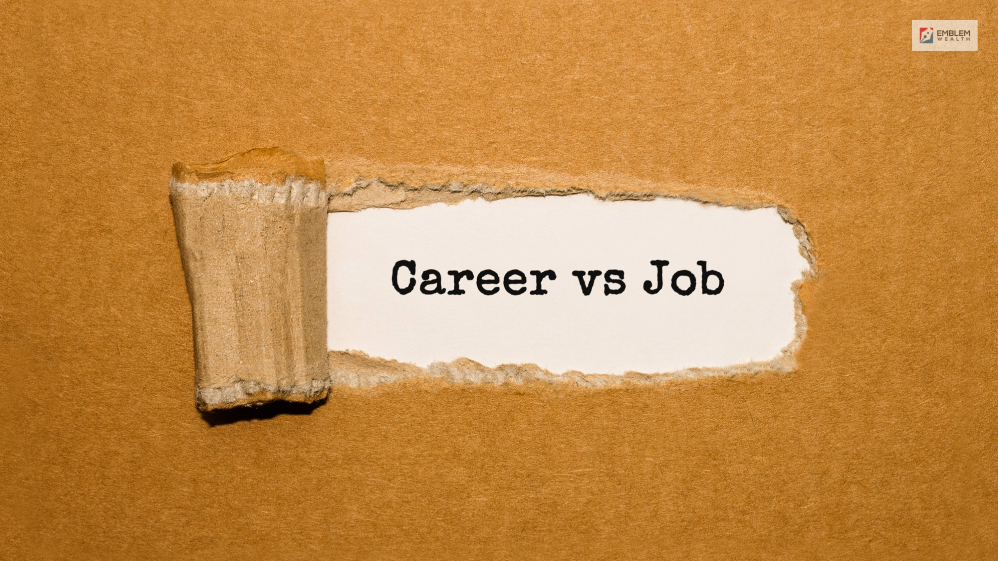Are You Wasting Your Potential? The Job vs. Career Dilemma

Confused between a job and a career? Most people are, especially youth who are just starting. There is a difference, even if it is primarily accepted that their use is interchangeable.
A job is generally something short-term that gives someone a paycheck. It is one of the ways through which people earn money to cover their bills and everyday expenses.
The career, however, involves a long-term professional journey into growth, learning, and progression. It’s about creating a meaningful, fulfilling path that aligns with your passion and aspirations.
Let’s get on with the details of jobs and careers. Compare the advantages of one over the other and then provide tips on how to step out of just one job and into a great career. So, here we go!
Understanding Jobs
A job is a job you take to make some money. It is typically very short-term and task-oriented to meet an immediate need. Jobs often are task-orientated, and not everything requires commitment or special skill.
Sometimes, you could work as a cashier or even a server. Those jobs generate income but won’t feed your passions or long-term goals.
Jobs are essential to finance, but they don’t make you. It is just working for survival. The knowledge about jobs makes you realize how it can be the launch pad for your career building in the future.
Understanding Careers

A career is a long journey intended to grow, develop, and actualize personal aspirations. A career is gradually attained in a particular field or industry. It is a buildup of experience, acquisition of new skills, and highness in one’s profession.
Unlike a job, which is usually very focused on the immediate need, a career gives someone a purpose and direction in life. Most people seek careers in places of interest.
A career over time will provide more benefits in terms of increased earning capacity and job satisfaction. Choosing a career will allow you to build something for your future and promote personal development.
Key Differences Between Job And Career

Have you ever wondered what exactly sets a job apart from a career? Are job and career just two different aspects of your professional journey? Or are they closely related? If you observe, you will see that these terms are often used interchangeably. But there is a slight difference between these two terms.
So, what makes a career different from a job? In this section, we will learn about the key differences between Job and Career. Let’s delve into it…
Benefits
When it comes to jobs vs careers, one of the significant differences that comes with them is the benefits.
On one hand, careers often offer various comprehensive benefits, which include paid time off, retirement contributions, health insurance, and many more. These benefits mainly focus on supporting the employees for better well-being and stability.
On the other hand, jobs typically lack such advantages. The jobs are often either short-term or part-time.
Education And Training
Now, careers generally require more qualifications and specialization than jobs for education and training. When you try to build up a successful career, you need higher education, specific certification skills, etc. This further helps you to gather more knowledge and enhance your skill set.
So, if you can successfully acquire certificates and a skill set, it will be easy for you to get more opportunities and the highest paying jobs.
Goals
If we talk about jobs, it primarily focuses on earning money. However, career, on the other hand, helps you align your work with your aspirations, talents, and goals.
Careers allow you to find two major things in your life: meaning and fulfillment in your work. It further helps you to pursue work that genuinely aligns with you. At the end of the day, it is all about finding purpose as well as creating a positive impact through all of your professional endeavors.
Growth
Growth is another crucial factor that plays a huge role in job vs career. Careers provide a tremendous long-term trajectory, which allows individuals to make progress through various promotions and responsibilities. As you take a step forward, you gain the opportunities to gain new skills and contribute to your personal growth.
On the contrary, jobs often have limited potential for better advancement. This happens mainly due to the jobs are more focused on fulfilling all kinds of immediate needs.
Choosing A Career Over A Job: Why It Matters
Choosing a career over a job can offer you various benefits. This includes:
- Personal growth: Careers offer you better opportunities for continuous learning as well as skill development. This can further lead to significant personal growth and development.
- Passion and purpose: Careers can be built around your interests as well as desires. It allows you to align your professional life with your personal goals and values.
- Long-term stability: Careers always provide you with a more sustainable approach to financial security over time.
- Fulfillment: When you are choosing a career that you really care about, you get the ultimate life of fulfillment.
- Transferable skills: Each and every position teaches you valuable transferable skills that you can ultimately apply to your chosen career.
How Do I Build A Successful Career?

A successful career is often built on a combination of three things: hard work, dedication, and, lastly, willingness to learn and grow.
- Set goals: Try to set a clear goal that is specific, measurable, attainable, relevant, and, lastly, time bound. These goals can help you to create a roadmap for your entire career.
- Research your skills and interests: Consider what you are good at and try to understand what you enjoy. This will help you to identify a potential career.
- Gain experience: You can take in various internships, volunteering and shadowing. This can help you to narrow down all of your options.
- Build relationships: Networking and professional relationships are always helpful in building a great and successful career. So, you can try to develop a strong relationship.
- Consider your purpose: Find your why and then try to define that. This can help you in both your professional and personal life.
- Document all your skills: You must find your unique selling point or USP and then try to create an excellent selling statement.
Common Misconceptions: Jobs Vs Career
Many people use the words “job” and “career” interchangeably. They are not synonyms. A job is a place you often go to for the purpose of making money. It’s usually short-term and frequently changing. You might take a job to learn something or for some other temporary need for cash. It’s not necessarily tied to your long-term goals.
A career is an extended, long-term pursuit. The term is the series of connected employment opportunities. On a longer timescale, it builds your skills, experience, and professional reputation. Usually, it is aligned with passion or interests.
One of the biggest myths is that a job cannot become a career. People start with an easy job and, through hard work, end up in a rewarding career. Another false concept is that people who have a career are always in their dream job. While a career does involve growth, not every part is exciting.
Most people consider jobs and careers to be stable and set in stone. But everything changes, including them. You might begin with one job and then move into a very different career.
Knowing the difference helps you to work with more precise goals, whether just money or trying to create something more significant.
Making the Transition from Job to Career
The transition from job to career might seem a little daunting. However, if you know the right approach, it would be helpful for you to make a smooth transition.
Here is precisely how you can do it:
- Make a plan: Create a timeline of the steps that you need to take in order to reach your new goals.
- Identify all of your transferable skills: Research the industry in which you are interested. In the meantime, you have to determine all of your skills as well as strengths that are applicable to the industry you want to work in.
- Learn the industry: Try to fully familiarize yourself with the terminology and culture of the industry where you want to transit yourself.
- Update your resume and cover letter: Customize your resume as well as your cover letter which will highlight all of your relevant skills and experiences. You can use the keywords as well as phrases from the job posting and industry-specific terminology.
- Network: Lastly, you must try to connect with all kinds of industry professionals, both online and in person. Better networking can help you to build up a relationship who can help you meet the decision makers.
Wrapping It Up!
So? Which is the better choice for you: a job or a career? Not that simple. A job might offer stability and benefits, but it might not be the best opportunity to move ahead.
A career may give you more satisfaction and a more incredible feeling of achievement; however, it may involve sacrifice and more challenging work. All of which, ultimately, will depend on your goals and what matters most to you.
Additional Resources:

























Leave A Reply